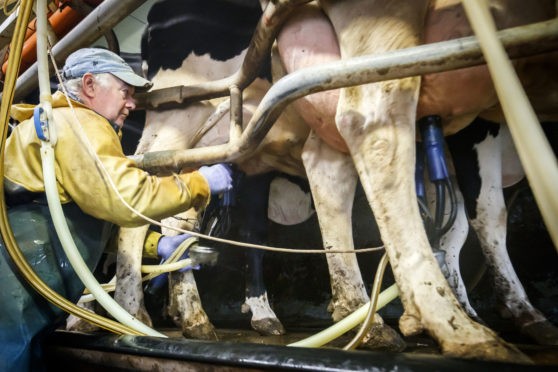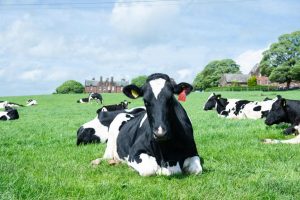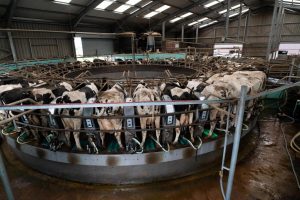
SRUC researchers want to measure the prevalence of the costly condition in Scottish dairy herds as it can result in lower milk production, reduced milk quality, poor growth of calves, abortions and infertility.
Project lead Jessica Ireland-Hughes, from SRUC veterinary services, said: “The study will hugely benefit the industry as it will help us gain a better understanding of what farms are more or less at risk from M.bovis and the reasons why.”
M.bovis can cause a range of symptoms in dairy cattle including pneumonia and middle ear disease in calves, and lameness and mastitis in adult cattle, and conditions are notoriously difficult to treat as the most commonly used antibiotics are ineffective against the bacteria.
M.bovis can also be difficult to detect as some infected animals show no signs of the disease, and other clinically diseased animals who recover may become carriers of the bacteria and go on to become a source of infection within the herd.
A closed-herd policy reduces the likelihood of introducing the problem and the risk of transmission can be minimised with best-practice cleaning and disinfection of calf feeding equipment and of the milking parlour as well as pasteurising cows’ milk and colostrum.
Farmers who agree to participate in the study will be asked to submit four quarterly bulk tank milk samples over the course of a year to be tested for the presence of M.bovis and antibodies. They will also be asked to complete a short questionnaire on general herd management practices.
Herds which have already signed up to the project will receive further information in the coming weeks.
Dairy farmers in Scotland who are interested in the project should email mycoplasmabovis@sruc.ac.uk or text 07785 382 371.

























